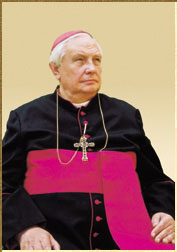http://www.nber.org/chapters/c9789.pdf
https://www.quora.com/Why-do-countries-borrow-money-from-the-World-Bank-Can-it-be-printed-in-their-own-country
http://money.stackexchange.com/questions/1380/why-do-governments-borrow-money-instead-of-printing-it
http://www.michaeljournal.org/plenty40.htm
https://www.google.co.in/webhp?sourceid=chrome-instant&ion=1&espv=2&ie=UTF-8#newwindow=1&q=nation+own+money+creation+versus+borrowing
http://www.michaeljournal.org/plenty.htm
In This Age of Plenty
|
 |
Louis Even
|
The title of this book — In This Age of Plenty — clearly shows that we are now dealing with an economy of plenty, in which the access to the huge possibilities of modern production is made easier for all.
“Old economics” was ruled by the presence of gold or any other rare commodity, when production itself was scarce. But it is to go against progress and logic, to want to keep an instrument linked to scarcity, to confer claims on automated production.
In the first part of this volume, we recall essential and very simple notions that everybody readily admits, but which are almost totally ignored in the present economic organism. The ends no longer direct the means. A short study of the present monetary system shows that money governs where it ought to serve. We present the Social Credit proposals as a remedy, explaining the outlines, without going into the methods of application. The problem, we believe, is not so much to develop a technique of operation, as to reach an agreement on ideas, which seem both too simple and too bold to the minds who are accustomed to losing sight of the ends, and to getting bogged down in the complexity of the means. So, several chapters are especially intended to justify the Social Credit doctrine.
The second part reproduces, without necessarily being linked with each other, certain speeches and articles which throw light on the various aspects of Social Credit.
In offering this book to the public, we have especially in mind the ordinary reader, who has no special knowledge of economics. Even in dealing with specific topics, we avoid technical terms as much as possible, since they are more likely to tire readers than to enlighten them. We strived to write in such a way as to be easily understood by the great majority of people — which, besides, is in the spirit of an economy of plenty to serve and everyone.
Montreal, May 1st, 1946.
LOUIS EVEN
Preface to the present edition (1996)
Fifty years after the publication of the first edition in French, Louis Even’s book, In This Age of Plenty, is now available in English. Louis Even began to make Social Credit known in French Canada in 1935, but now, in 1996, there are as many subscribers to his Movement’s English-language periodical, Michael, as to its French-language periodical, Vers Demain, in several countries in the world. (For more detail on the development of Louis Even’s Social Credit Movement, see the biographical notes.)
The present volume is the English translation of the fourth (revised and enlarged) edition in French, published in 1988. Ten chapters and six appendices have been added to this 1988 edition, to form the present volume. (These additions are mostly taken from issues of “Michael” published after 1988.)
In This Age of Plenty published in Polish
 |
Bishop Kraszewski
|
 Louis Even’s book, “In This Age of Plenty”, was published in Polish in 1993 by Bishop Zigniew Jozef Kraszewski, then Vicar General of the Diocese of Warsaw-Prague, Poland. (Note: Bishop Kraszewski died on April 4, 2004.) Here is the translation from the preface to Louis Even’s book, written by Bishop Kraszewski:
Louis Even’s book, “In This Age of Plenty”, was published in Polish in 1993 by Bishop Zigniew Jozef Kraszewski, then Vicar General of the Diocese of Warsaw-Prague, Poland. (Note: Bishop Kraszewski died on April 4, 2004.) Here is the translation from the preface to Louis Even’s book, written by Bishop Kraszewski:
“What Catholics learned in the social doctrine of the Church is the way between socialism and capitalism. For many years, this doctrine has been diffused in Canada, and known as the Social Credit theory. Louis Even’s book, In This Age of Plenty, that I introduce to the Polish readers, is an exposition of the Catholic social doctrine that is good not only for the Canadians; this book contains a lot of instructive topics for any person who reads it and who is open to social problems. This book has not been written only for great theoreticians and scholars, but for everybody. That is why this book is precious to the Poles, especially at the time of the second miracle of the Vistula River that we are presently experiencing. (The miracle of the downfall of Communism.)
“Poland miraculously succeeded in gaining its freedom and sovereignty. After the devastation of Communism that had been keeping us captive for so many years, we have the duty to choose the right path of social justice, based on Catholic doctrine. I think this book will largely help in achieving that. I entrust all the readers to the protection of Our Lady Victorious, who reigns in the co-cathedral of Kamionku, in Warsaw.”
PART I — Goods at the service of needs through Social Credit
Part II — A Few Talks and Articles on Various Aspects of Social Credit
 This 410-page book presents a new conception of finance, of the money system, that would definitely free society from purely financial problems. Its author, Louis Even, sets out the outlines of the Social Credit financial proposals, conceived by the Scottish engineer Clifford Hugh Douglas.
This 410-page book presents a new conception of finance, of the money system, that would definitely free society from purely financial problems. Its author, Louis Even, sets out the outlines of the Social Credit financial proposals, conceived by the Scottish engineer Clifford Hugh Douglas.
No comments:
Post a Comment